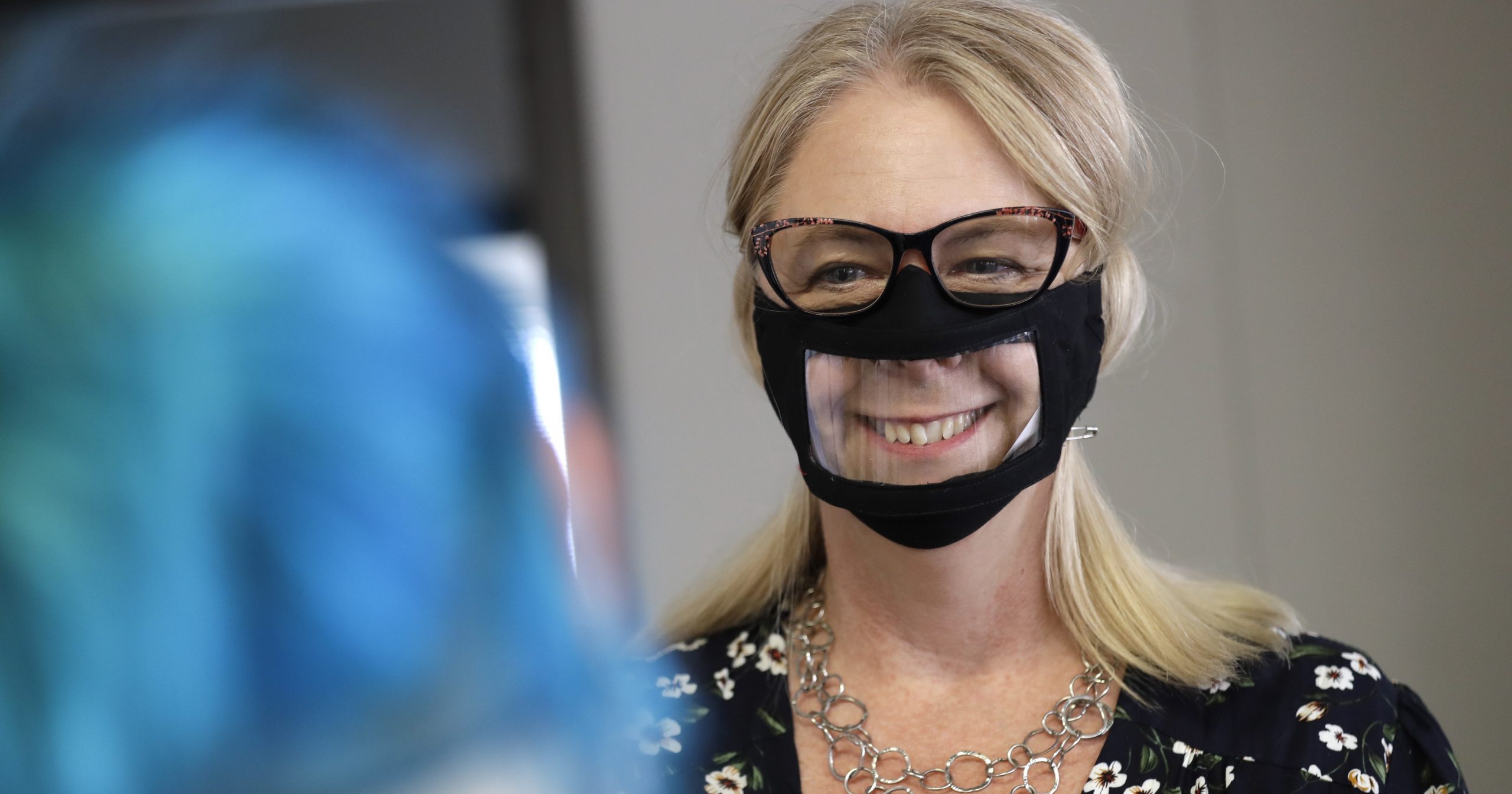
See-Through Face Masks Mean More Than Smiles for Deaf People
Michael Conley felt especially isolated these past few months: A deaf man, he was prevented from reading lips by the masks people wore to prevent the spread of COVID-19.
But then he met Ingrid Helton, a costume designer who sewed him a solution — masks with plastic windows that allow lip readers to see mouths move.
She has started a business to provide the windowed masks, and she’s not alone. A half-dozen startups are doing the same.
They have been inundated with orders — and not only from friends and family of the roughly 48 million Americans who are deaf or hard of hearing.
“You can tell so much by a facial expression, so it’s proving that it can be helpful to everybody,” Helton said.
Teachers want them for English learners struggling without being able to see native speakers pronounce words. Hospitals and businesses want them to help improve communication, and so everyone can see the smiles of their workers.
“We have retailers who say, ‘We want to protect our employees but our customers need to see their smile and put customers at ease,’” according to Dr. Anne McIntosh, a hearing-impaired doctor and founder of Safe n’ Clear in North Carolina.
The company’s surgical mask with a fog-resistant window, The Communicator, was the first to be approved by the FDA.
The Communicator was developed before the pandemic to address a problem that lip readers have long faced in trying to understand masked workers in hospitals.
The problem has been worsened by the coronavirus outbreak; many interpreters for hearing-impaired people have been blocked from medical facilities by pandemic restrictions.
But as masks have proliferated outside hospitals, so have the miseries of deaf people.
Conley, a San Diego museum worker, suddenly found himself cut off from the world. Unable to see mouths, he could not understand or even know when people were speaking to him. He was anxious about going to the pharmacy for his medication or the grocery store for food.
He paced outside his favorite neighborhood restaurant for 45 minutes, wondering what he would do if a masked worker asked questions after he gave his takeout order.
Thankfully, once he walked in, an employee recognized him and immediately pulled down her mask to talk. He was touched.
But not everyone knows him. He carries pieces of paper with him to ask people to write down what they are saying — eliminating the need to remove a mask — but that means touching the same paper.
One young man bagging his groceries refused.
“It makes you lose your confidence,” said Conley, who has been deaf since birth. “It takes its toll.”
After he told co-worker Chris LaZich about the challenges, she sought help from her friend Helton, the San Diego Opera costume shop manager known for making extravagant outfits out of almost anything.
Helton got busy sewing. And soon, she started her company, Happy Laugh Masks.
Conley has been moved that so many people have come together to help him regain his independence.
Several of his colleagues at the Fleet Science Center plan to don Helton’s masks when the museum reopens.
He and LaZich recently met to try out a prototype.
“I’m having no trouble reading your lips,” Conley told LaZich.
Through her mask’s window, she flashed him a smile.
The Western Journal has reviewed this Associated Press story and may have altered it prior to publication to ensure that it meets our editorial standards.
Truth and Accuracy
We are committed to truth and accuracy in all of our journalism. Read our editorial standards.
Advertise with The Western Journal and reach millions of highly engaged readers, while supporting our work. Advertise Today.












